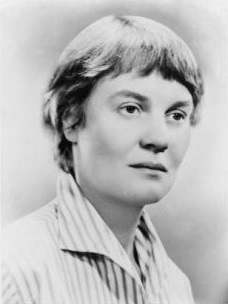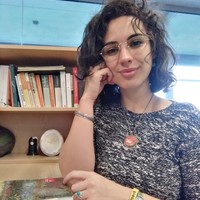From desiring to inquiring:“setting the stage for attention” through philosophical dialogue
Michela Dianetti & Lucy ElvisWeil thought that education should be the art of orienting others’ attention towards reality, an activity characterised by faith, desire and humility. Her proposal seems a world away from the curriculum demands, hierarchies and competition that characterize education today. What could possibly lay the foundation for this radical reimagining? At a minimum, significant groundwork is needed to set the stage for attention.
We propose that a potential tool to progress education for and of attention already exists: the Community of Philosophical Inquiry. The CPI (Community of Philosophical Inquiry) is the central tool of the Philosophy for Children (P4C) pedagogy. A CPI attempts to build an answer to a shared, philosophical question (a conceptually-focused question, enduringly connected to human life and living) through structured, collaborative dialogue. Each member of a CPI brings their knowledge, experience and imagination to this process. Facilitating a successful CPI is complex, requiring educators to share in the desire to know what animates the young thinkers in their community, a jettisoning many of the unquestioned assumptions about the value of ‘academic outcomes’ such as the ‘desire to get good grades’ or ‘pass exams’ (227) that Weil identifies as fundamentally misguided.
Opportunities to attend otherwise together
Here, we’ll recount the stages of a philosophical inquiry (encountering a stimulus, formulating questions, inquiry dialogue, and reflection) highlighting where they align with Weil’s attentive education. By way of an important caveat, we describe fostering attention as a potential of the community of philosophical inquiry, but do not extend this claim to all philosophical practice with children or all forms of philosophical inquiry.

This account of the CPI is based (i) on the writings of Ann Margaret Sharp (a founder of the Philosophy for Children Pedagogy), (ii) our practice in Philosophy for Children and inquiring with others, and (iii) the moments of attention (as described by Weil and Murdoch) that we’ve experienced in these contexts. Sharp, a great reader of Weil, appreciated the fundamental role of ritual in philosophical inquiry in terms of the sequence of actions the community performs and the expectations of contributors to the inquiry itself.
Each inquiry begins with an encounter with an object, artwork, text, or experience termed a stimulus or provocation because it prompts philosophical reflection—not in terms of what an individual brings to the object but rather the ways in which the stimulus provokes doubt. Meeting a provocation with curiosity and an assumption of its value can open a space for ‘attending otherwise’ to objects in the world.
‘Attending otherwise’ can be attenuated by the collective nature of the CPI in its second phase (conceptual exploration), where the community identifies contestable concepts from their encounter with the stimulus (love, peace, injustice, truth or power for example.) Here, individuals may be confronted by the radically contrasting ideas that arise for other community members. This reveals an expanded set of conceptual valances that emerge between members of the community. This phase echoes what Iris Murdoch (another great reader of Weil) said of the need to extend our ‘vocabulary of attention’ (AD 293), which involves a shared negotiation that happens collectively.
Inquiry: a process of wonder, desire, and joy
The community then formulates philosophical questions about concepts. Offering a question to a CPI can be thought of as a moment of faith. Unlike questions posed by teachers who know and control the answers given, the participant who offers a question to the CPI implies faith that one’s peers can reveal more of the world to them through their thoughts and experiences. These are questions that matter to the community, sparking their curiosity. After a question is democratically chosen, sometimes through consensus building regarding urgency, relevance or salience, or voting, the inquiry begins – a quest led by desire.
Weil writes “intelligence can only be led by desire.” (228) She notes that a desire to see the world as it really is sustains the practices that move us towards attention. The members of a CPI share a desire to know or establish truths about a matter of shared importance. For Weil, in order “for there to be desire, there must be pleasure and joy” (228) where joy is ‘the sensation of the real’ (N 182). Within the CPI, contributing to the unfolding dialogue entails expectations that you will provide reasons that support your claims and offer experiences relevant to the question at hand. Doing so collectively permits a productive challenge to be placed to our subjective narratives.
Weil claims that humans have the potential to change the meanings that they read in appearances, which are imposed on them through culture, society and the difficulty we naturally feel in facing reality (ECR). She says that “Every being silently clamours to be read otherwise” (N 43) and proposes an apprenticeship of reading to help us recognise the multiplicity of readings of things in the world. This is a preparatory step toward seeing the difficult reality of the afflicted that Weil discusses at the end of RSS. If successful, we can change what appears to us through effort.
“A little fragment of truth”

Weil’s ‘attentive reading’ aligns with Iris Murdoch’s idea of attention, where the self remains substantial. For Murdoch, we are always “setting the stage for attention” (Murdoch, “Waiting on God”: A Radio Talk on Simone Weil, 15), meaning that to reach Weil’s pure attention, where there is no more self, we first need the self’s contribution to perception and judgment, while simultaneously removing egotistical tendencies. The CPI’s interpersonal dialogic dimension rewards the reduction of the ego’s claims with deeper understanding and joyful philosophical discovery. This is only possible if we can willingly imagine a world where others’ accounts and interests matter; where we leverage our imaginative faculties to understand other’s experiences. This means not integrating the latter into our own view but with the open assumption that another person’s testimony can place a valuable challenge to our beliefs and operative assumptions. Of course, the development of an openness to philosophical dialogue, like attentive education, is something that, as Weil noted, requires experience. Both the development of a CPI and attention require more than will or ‘muscular effort’ (228) they are a result of a developed habit. Weil reminds us that each small effort has value “[e]ach effort adds a little gold to a treasure that nothing in the world can steal.” (227)
Weil speaks of the solution to a geometry problem as “a little fragment of a particular truth.” (230) Thinking together in the CPI works in this way. Each lived experience of a given concept is integrated into the answer constructed by the group which forms a “provisional judgment.” Product-drive education might perceive this as an ‘unproductive and fruitless effort’ (226), much like trying to solve a geometry problem, or translating from Latin. However, developing the habit of attending to a philosophical question, and to each other, can transfer to different realms of our lives. Indeed, learning the habit of appreciating the experience of others can be a foundation for the “love of one’s neighbour” as a co-inquirer, a unique perspective on the world rather than a recipient of “warmth, good-heartedness” or “pity,” three capacities Weil thinks are insufficient surrogates for true attention (231).
In the CPI, the desire to know is moderated by the need for attentive listening, a desire that refrains from “wanting to be active” (229) to rush to the solution. Each contribution is a bridge for the next speaker who might reformulate or challenge what has been offered. Each contribution is open to the discernment of its degree of “falsehood” (230) while being offered as a strand that builds the argumentative thread. In the Community of Inquiry, where members often use their lived experience, the Weilian question “What are you going through?” and the effort of trying to see the other’s situation “as they are looking at it” through sympathy — which for Weil enables compassion – becomes an imperative necessary to the philosophical quest.
Conclusion
In closing, the CPI reflects critically on their thinking. This metacognitive reflection is crucial for developing capacities for thinking, and fostering the values of communal dialogue (humility, openness, respect, and compassion). Appraising our thinking, its successes and, more fundamentally, its failures is an exposing task. Collective reflection acts as a bulwark against tendencies to resist the “ugliness of mediocrity’”(227). While the CPI searches for answers, such answers acknowledge their fundamental frailty. Greater experience, other inquirers, and different perspectives will mean that our answer can only be a “resting place.”
A space of mutual attention such as the CPI might initially seem to conflict with Weil’s idea that attention is only possible within “mental solitude” (HPS 108). We argue that this collective space allows for an expansion of our capacities for thinking while diminishing the concomitant growth of ego by enhancing a sensitivity toward and for the thoughts and experiences of other inquirers. CPI participation should prepare each of its members to live a life of inquiry, one animated by care for philosophical values and an abiding interest in the world, a desire to experience reality and a continuing joy in glimpses of the same. For Weil, “The first duty toward schoolchildren and students is to make this method known to them” (230); philosophical dialogue guided by an attentive facilitator can be an important first step toward doing so.
Bio Statement

Dr. Michela Dianetti is a lecturer in Philosophy, a post-doctoral researcher in the ‘Critical Thinking in Communities of Inquiry’ project at the Insight Centre for Data Analytics at the University of Galway, and a community philosopher. In her PhD research, she developed a literary ethics of attention grounded on Simone Weil and Iris Murdoch and applied it to the literary work of Elsa Morante. She is also the Italy correspondent for Attention.

Dr. Lucy Elvis is a lecturer in Philosophy at the University of Galway, a founder of Curo Thinking for Communities a not-for-profit that focuses on empowering groups to think philosophically together in non-formal educational contexts from music festivals to art galleries and libraries and an art writer. Her research and teaching focuses on the power of art and of philosophical thinking to enrich human life.
Sources
Weil, Simone [HPS, ENR, SS], D.K. Levy & Marina Barbabas, eds. & trans., Simone Weil: Basic Writings. Routledge, London & New York, 2024, pp. 225-232.
_______ [N] The Notebooks of Simone Weil. Arthur Wills, trans., G. P. Putnam’s Sons, 1956.
Murdoch, Iris, ‘Waiting on God’: A Radio Talk on Simone Weil (1951), with a Prefatory Note by Justin Broackes, Iris Murdoch Review, 8, 2017, pp. 9-16.
_______, [AD] ‘Against Dryness’ in Existentialists and Mystics: Writings on Philosophy and Literature. Peter Conradi, eds. Penguin, London, 1999.
3 Recommendations
